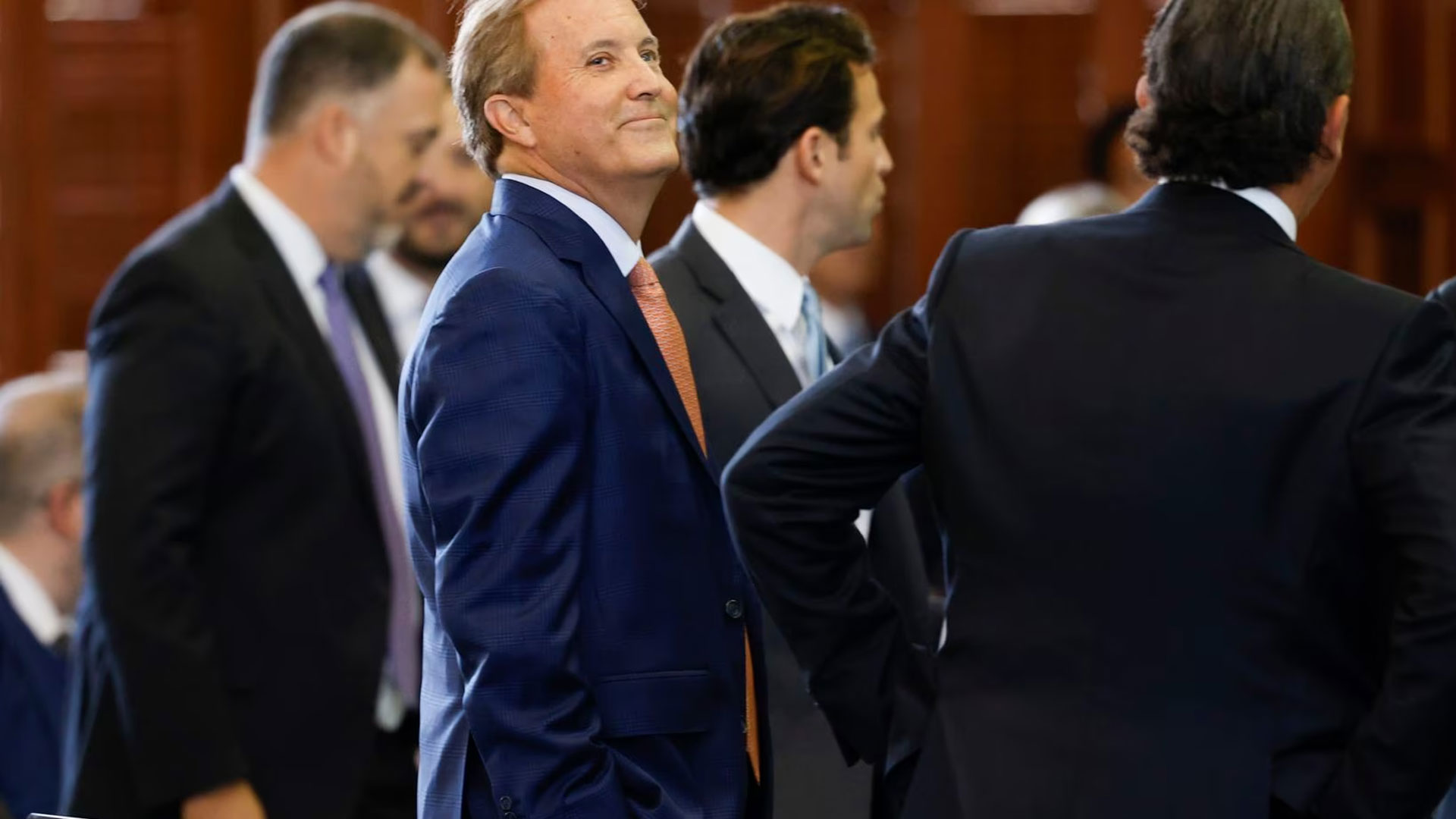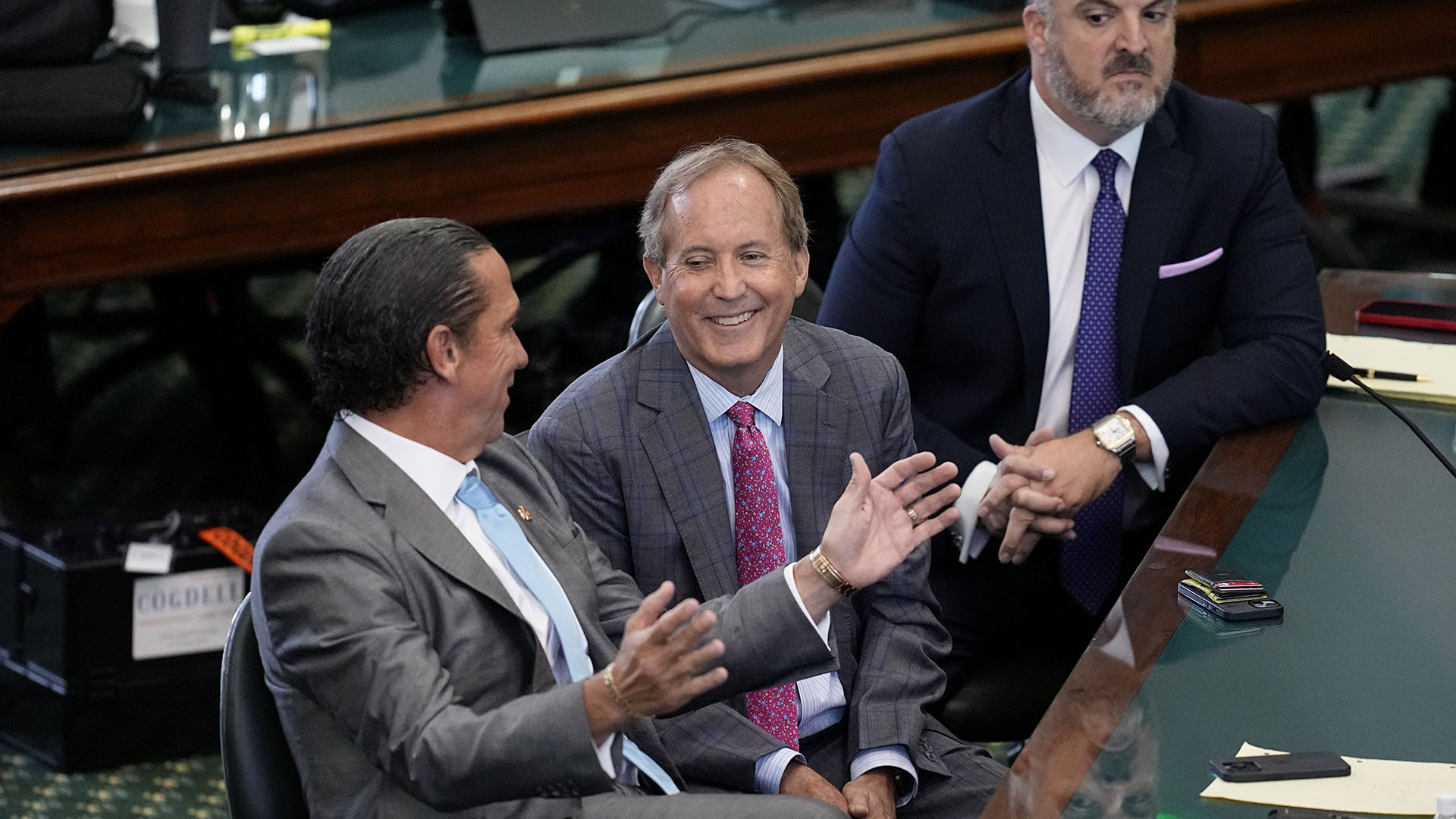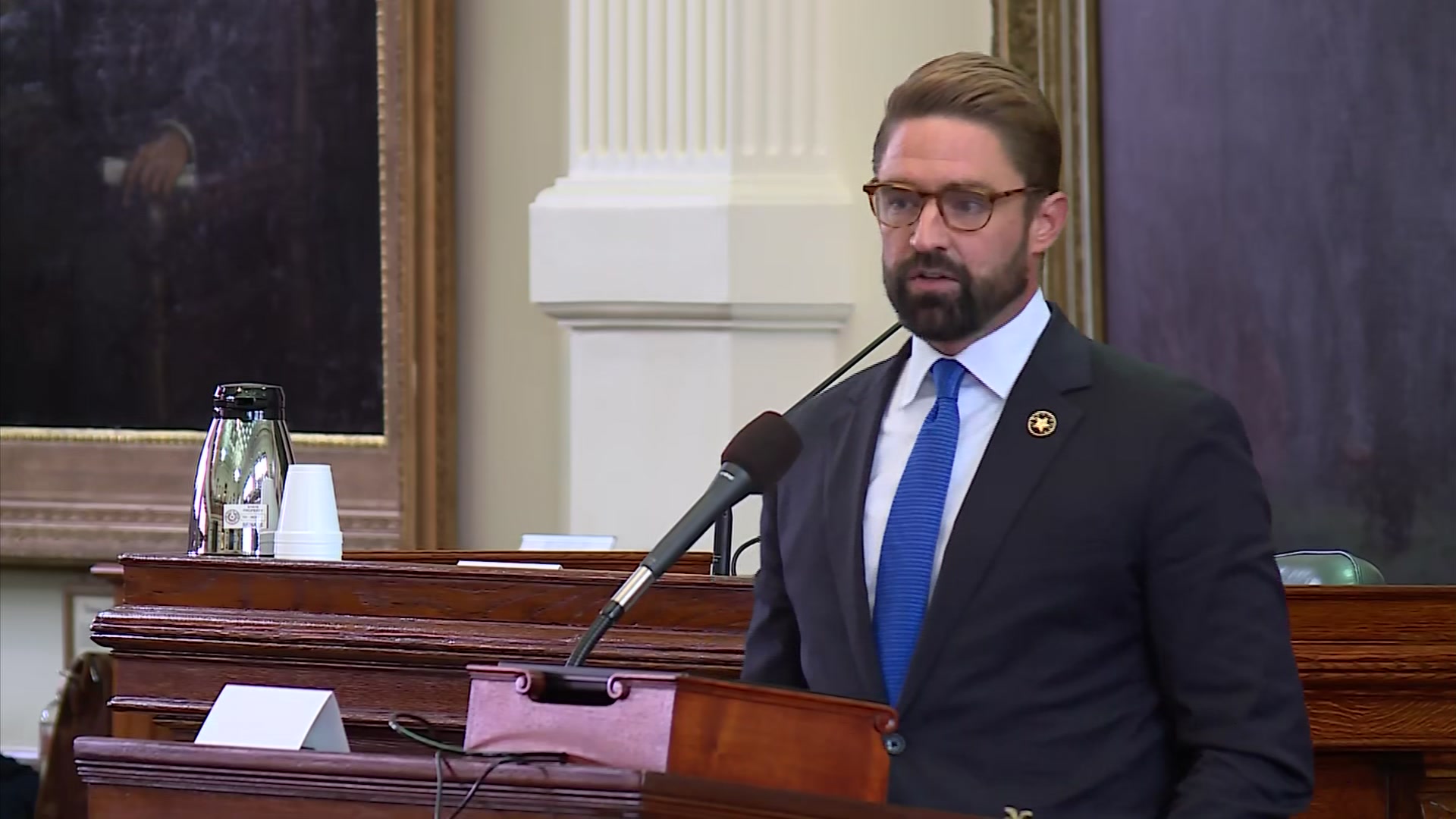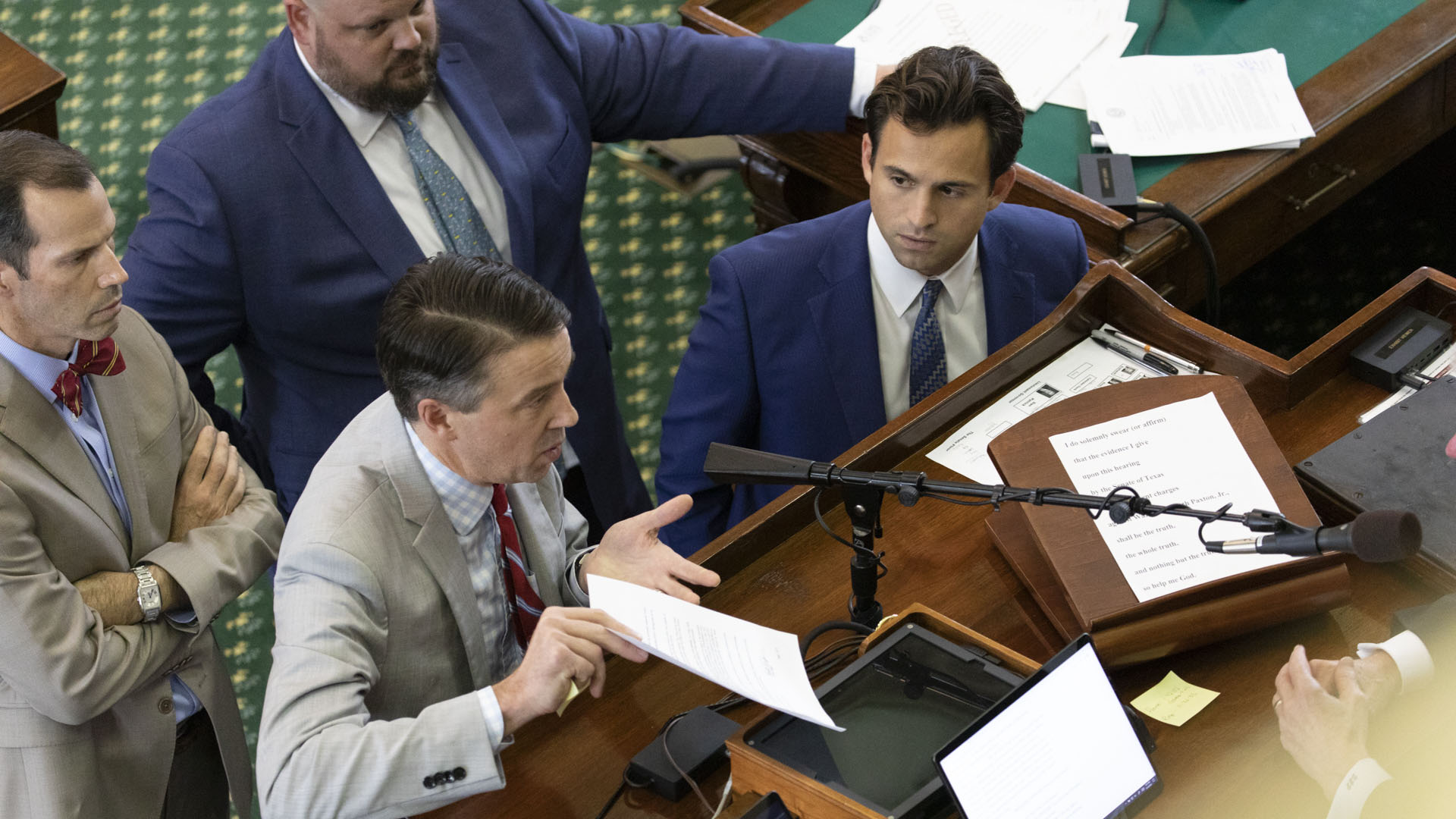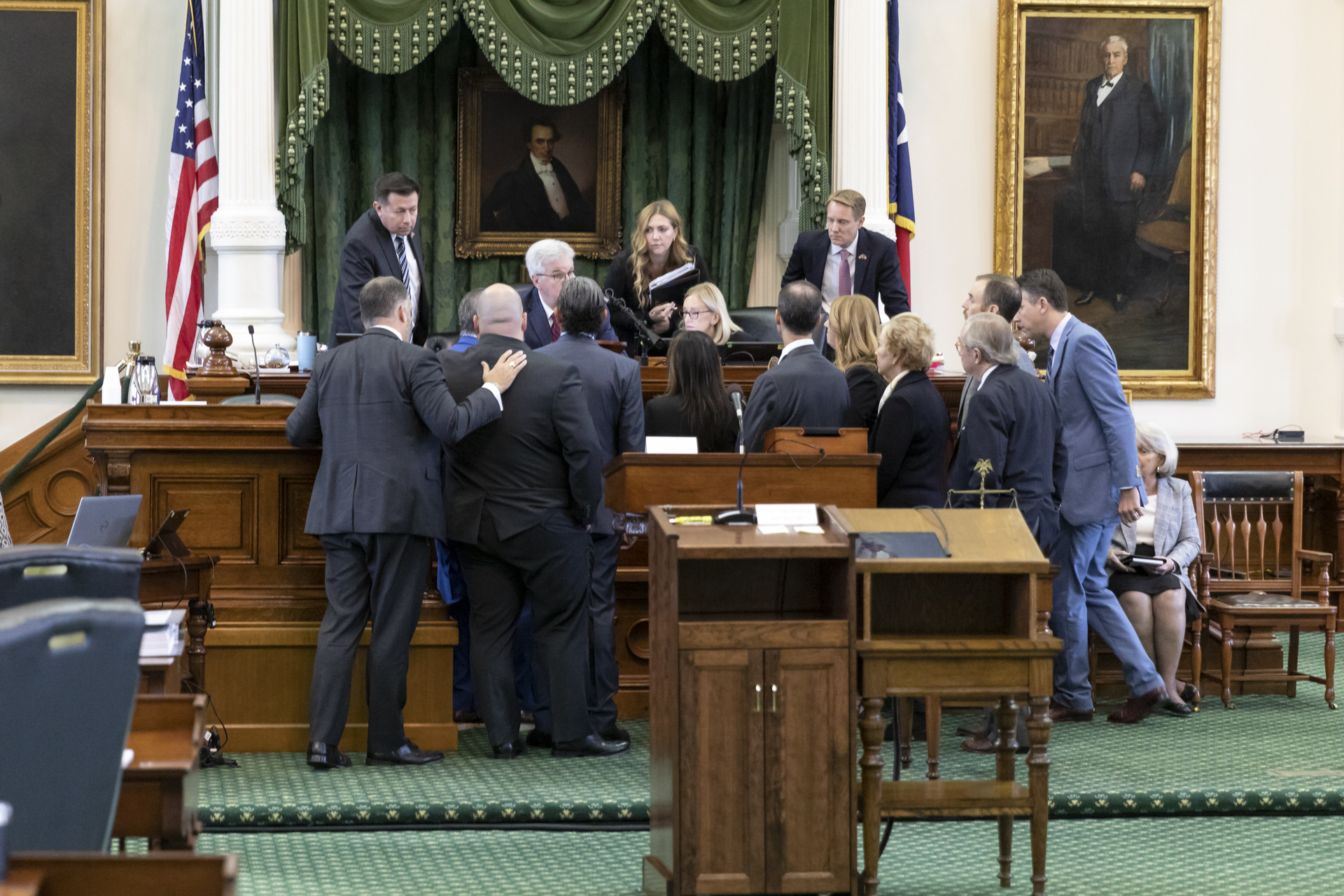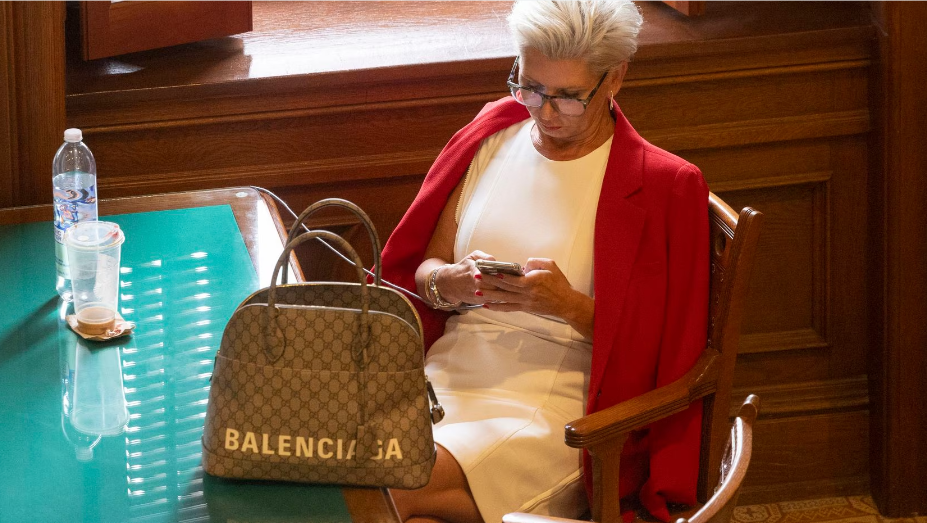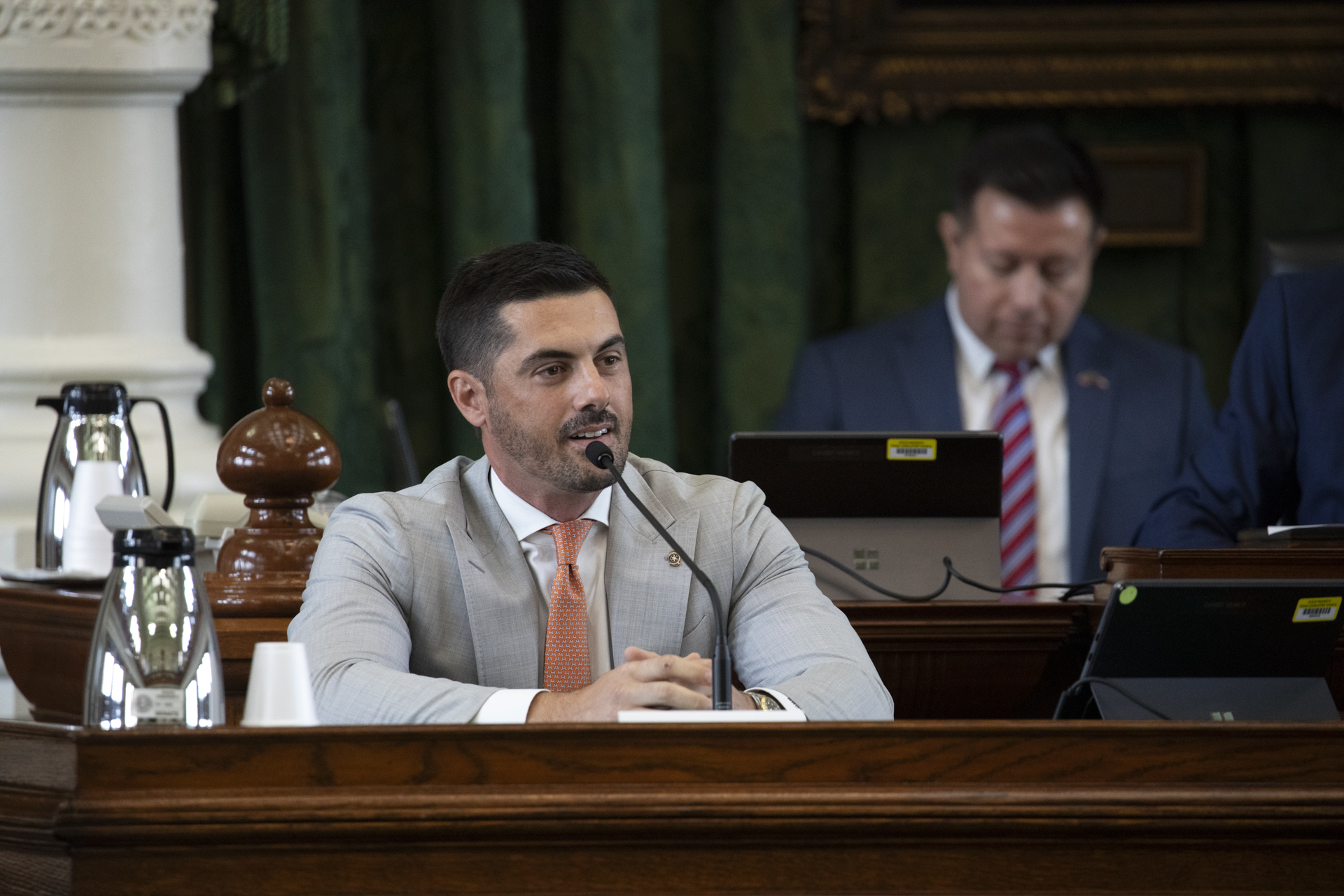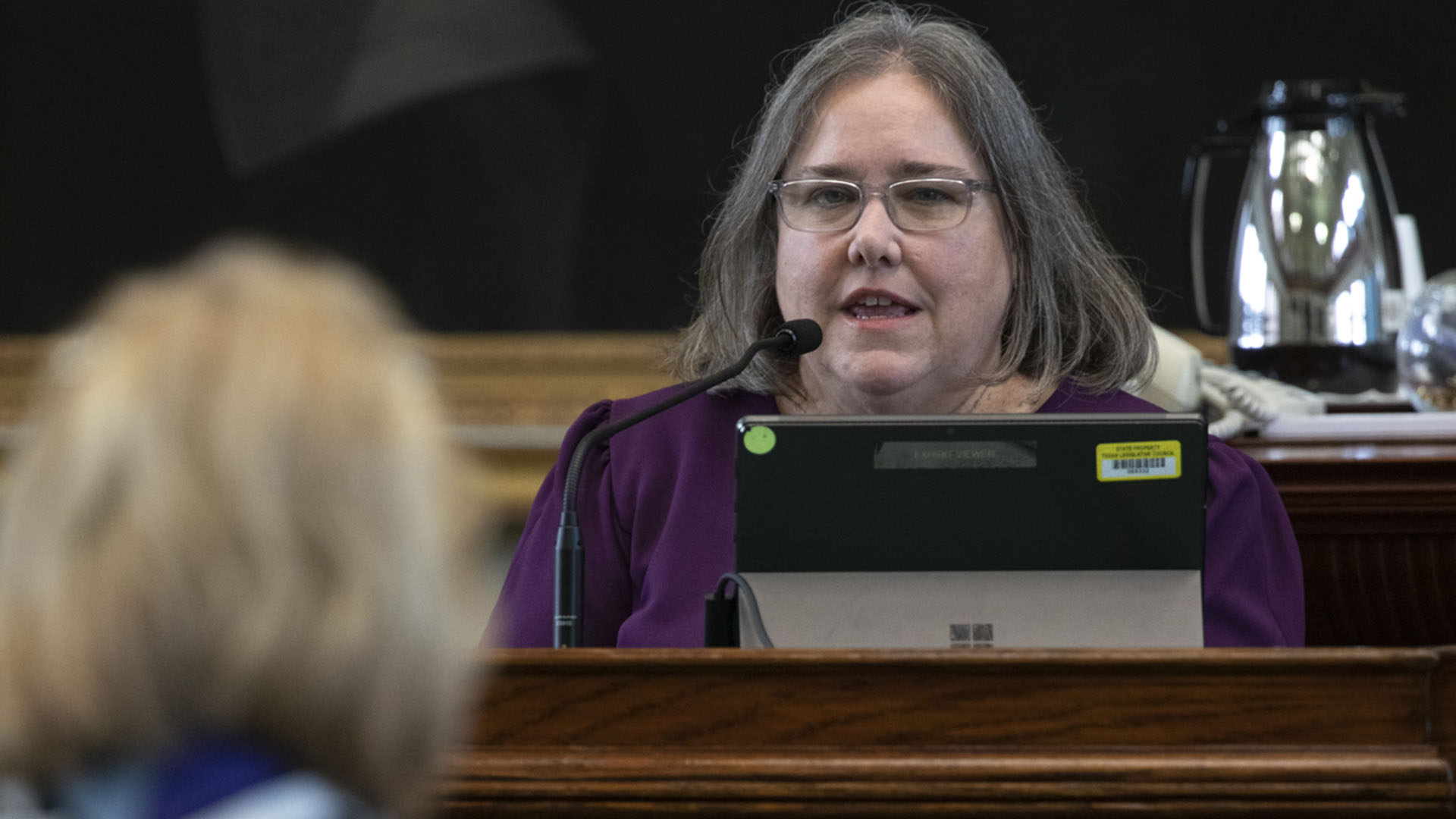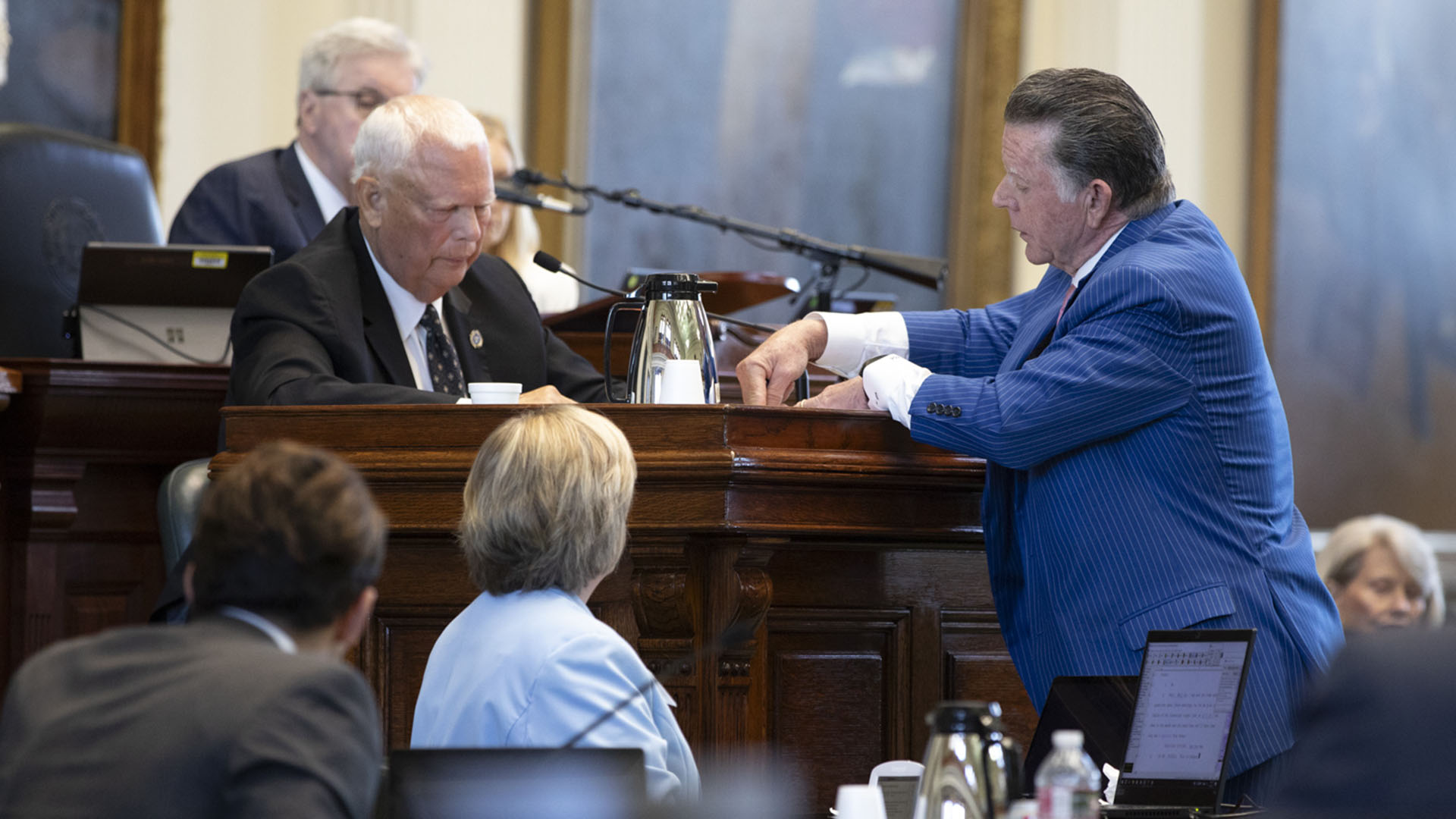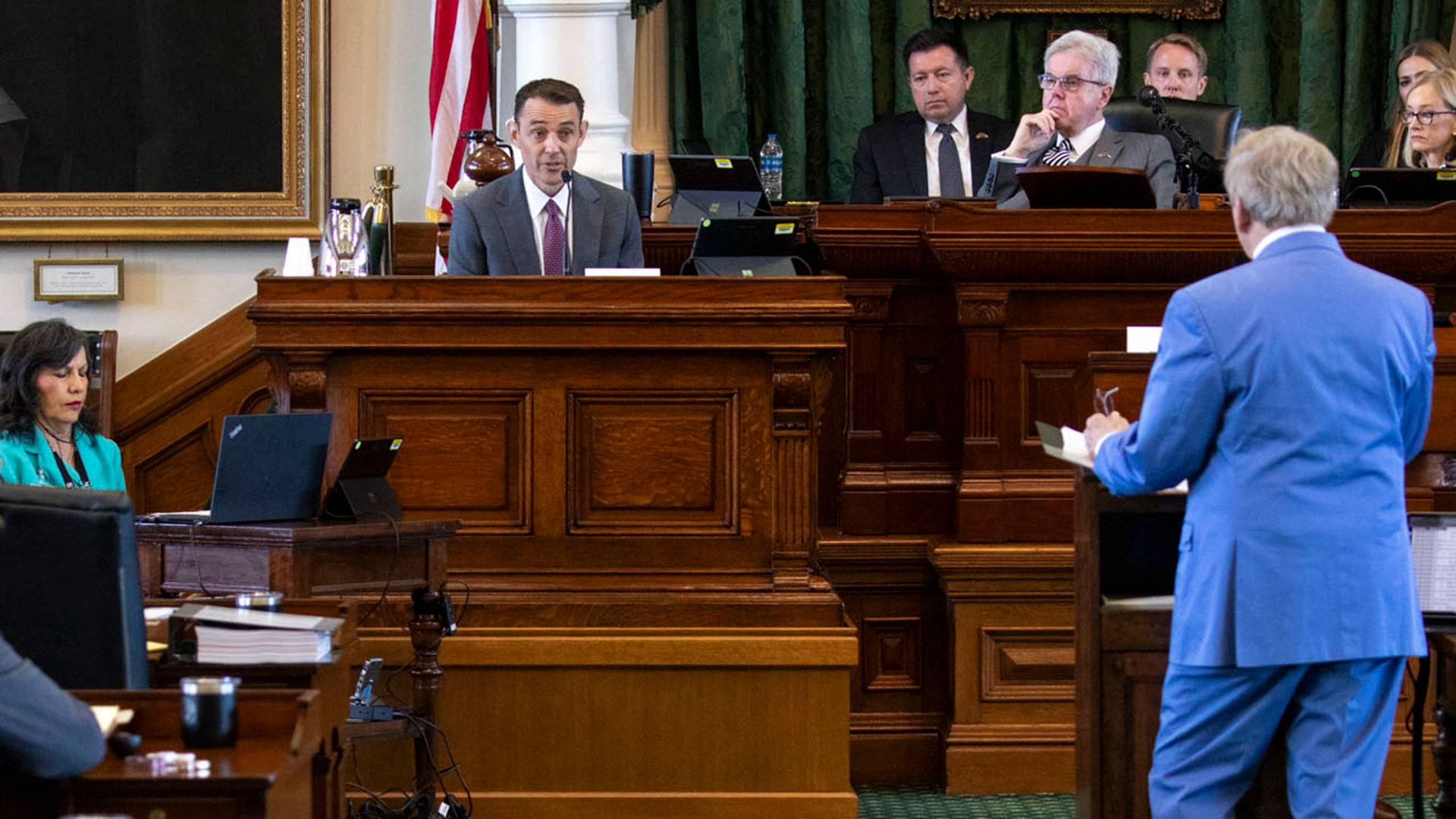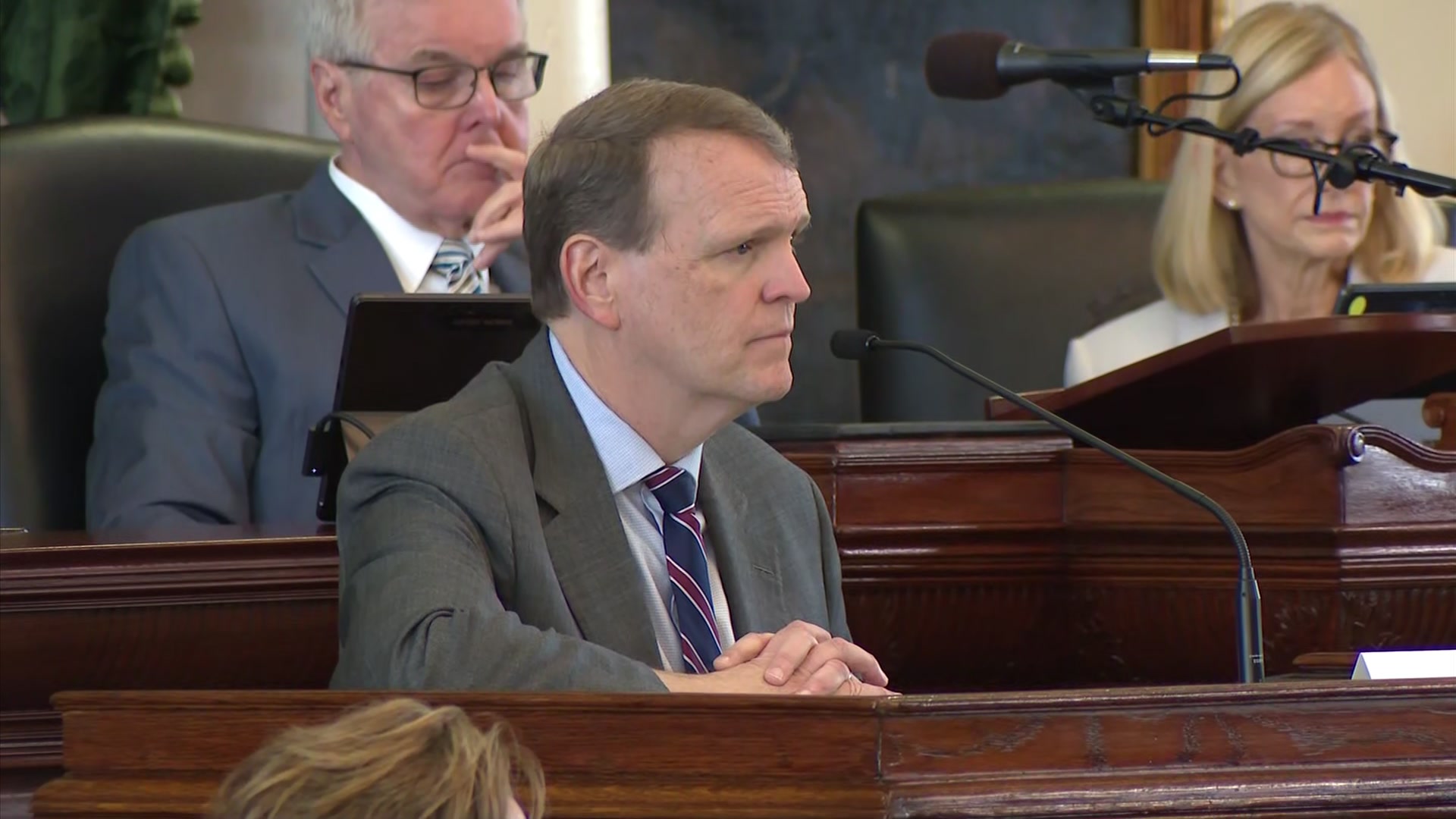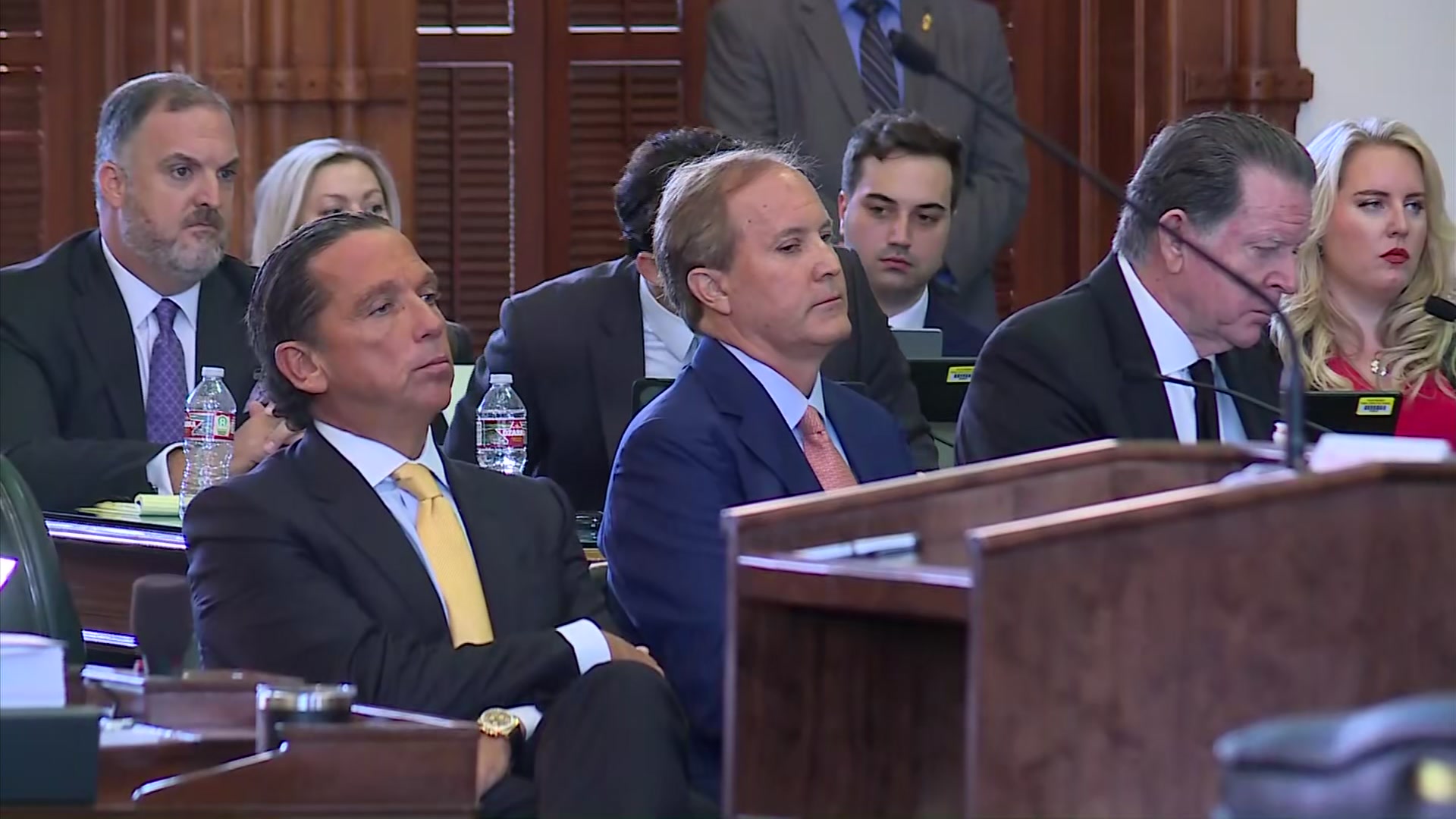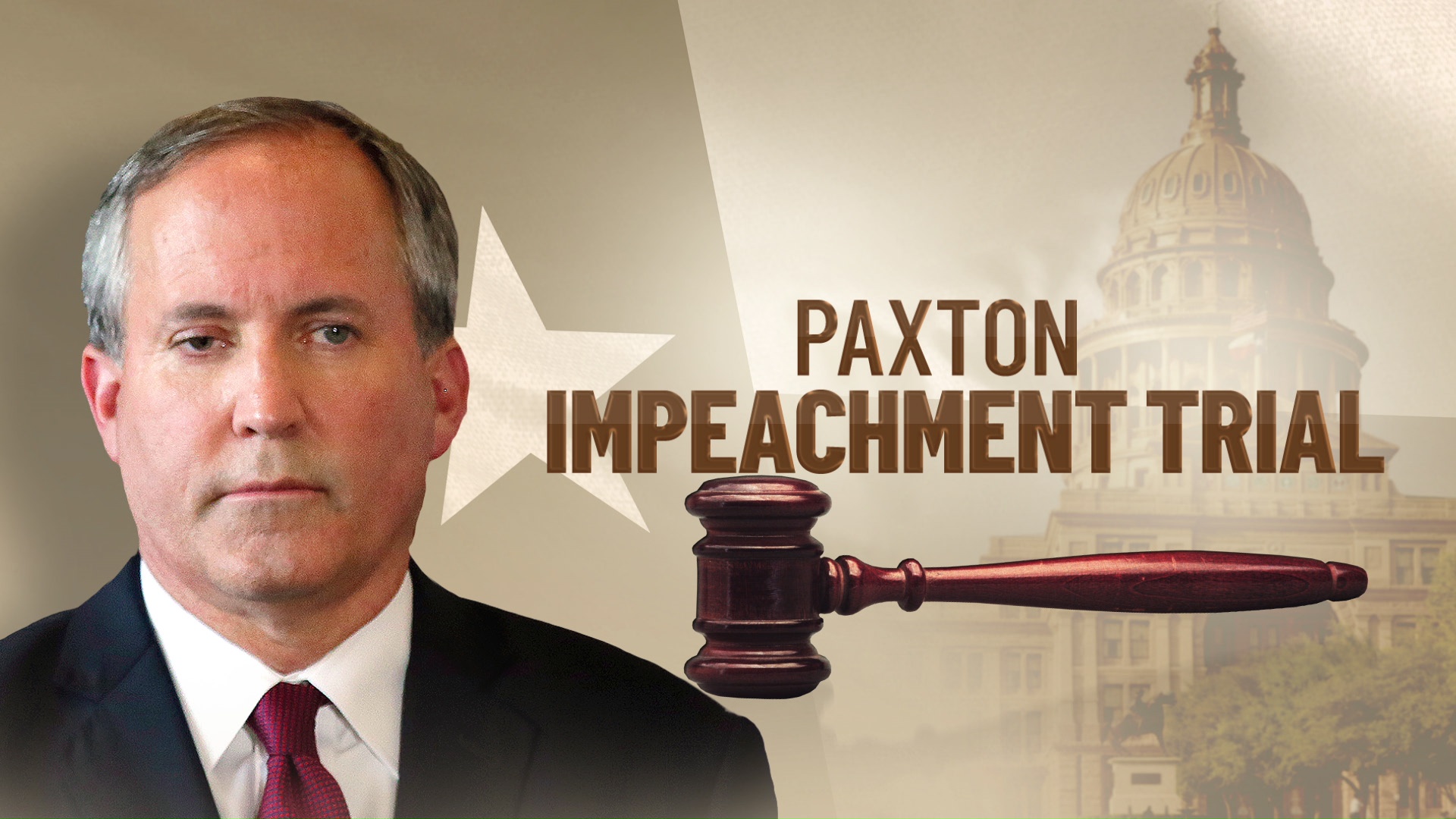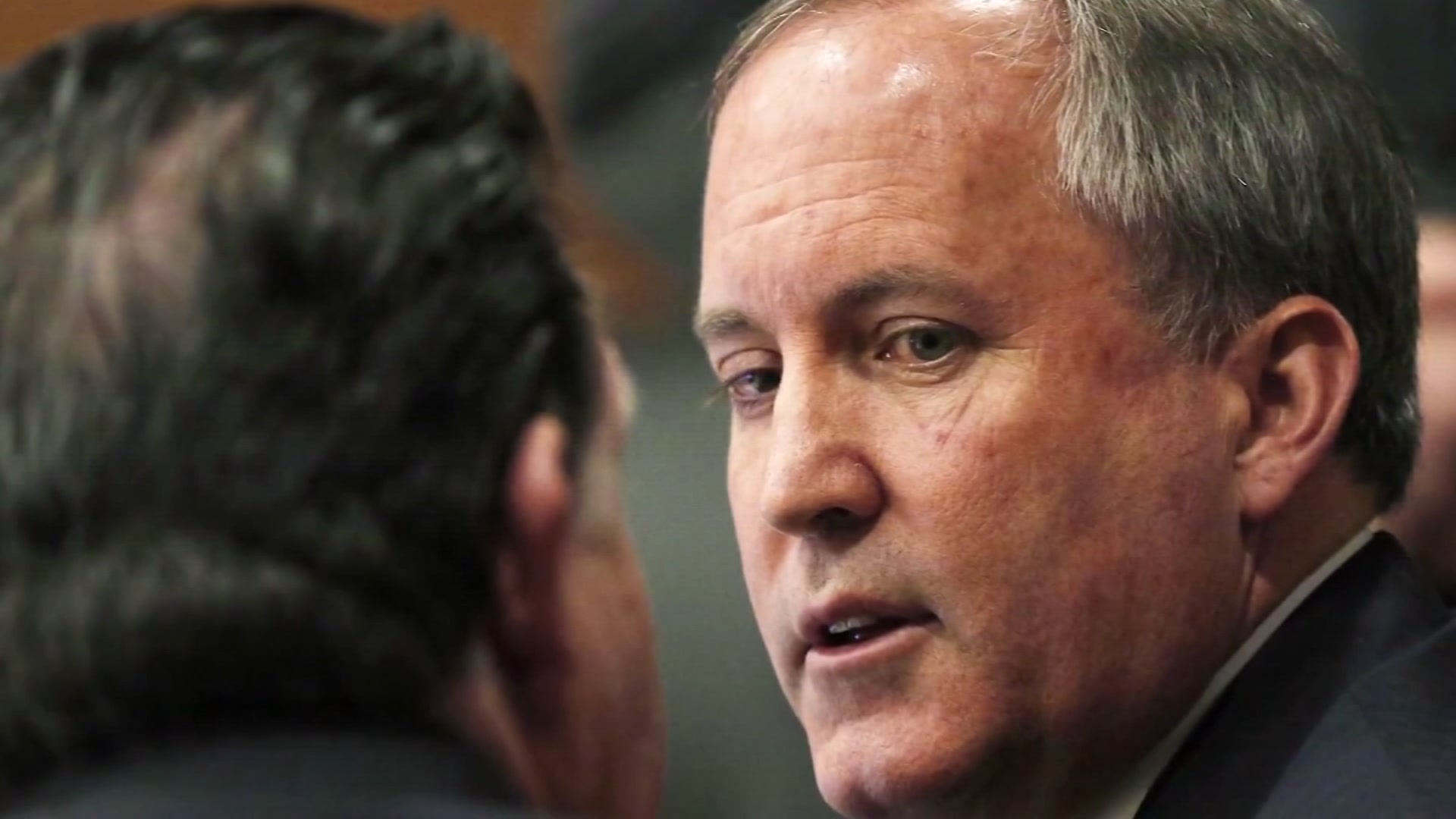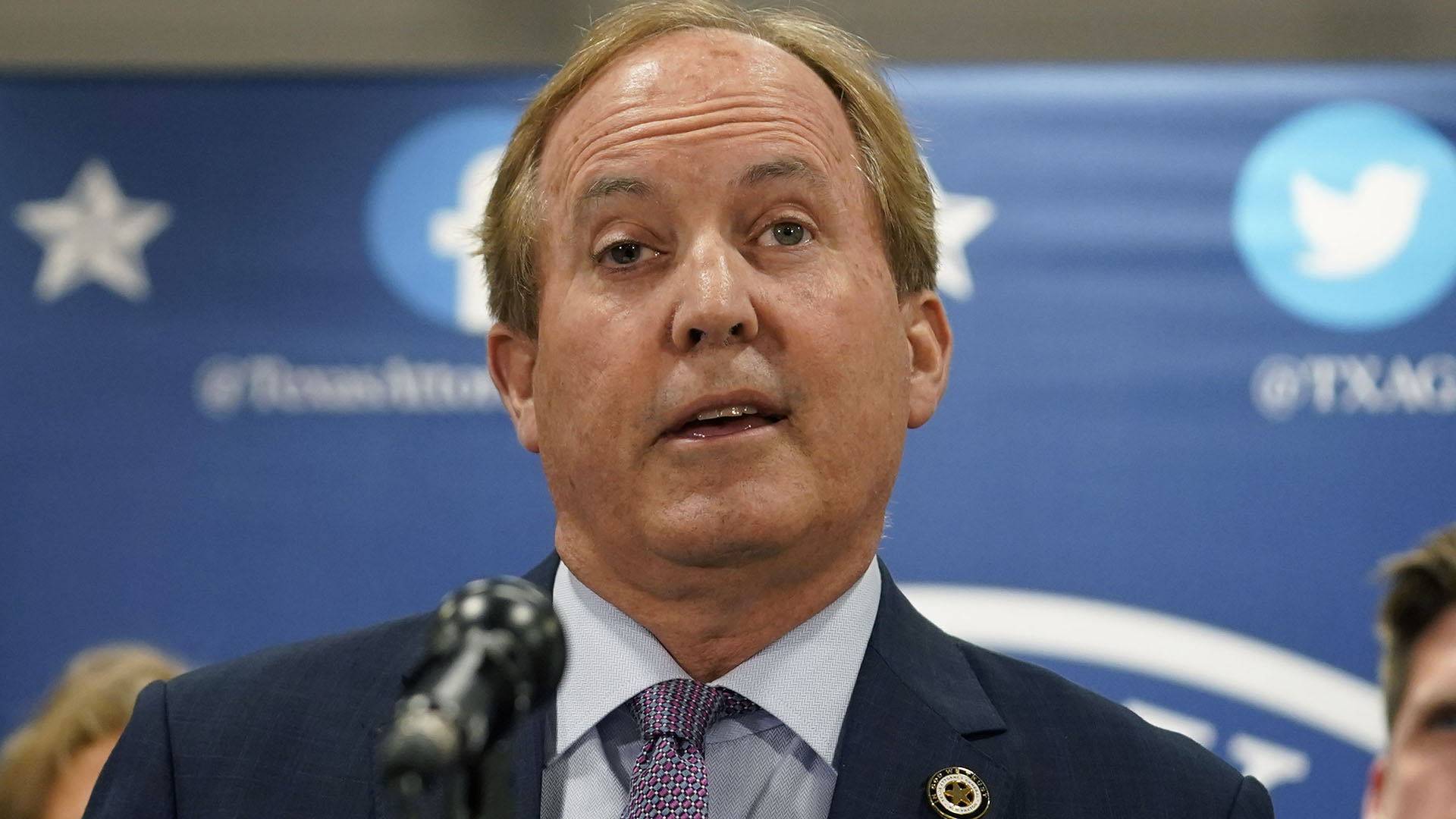The impeachment trial for suspended Republican Texas Attorney General Ken Paxton resumed Tuesday morning.
Prosecutors called Brandon Cammack as their first witness Tuesday. (Read the latest updates in the trial in the live blog below)
Cammack is the outside counsel hired by Texas Attorney General Ken Paxton often mentioned during testimony by the whistleblowers.
The whistleblowers are a group of former high-level staffers in Paxton's office who notified the FBI that they believed their boss was breaking the law in helping Austin developer Nate Paul. Paul claimed that he was a victim of illegal behavior by the Federal Bureau of Investigation with improper warrants served in a search of his home and business and allegedly asked for help from the AG's office.
Get top local stories in DFW delivered to you every morning. >Sign up for NBC DFW's News Headlines newsletter.
Evidence shows Paxton hired Houston Attorney Brandon Cammack to pursue an investigation of Paul’s allegation about the FBI and other parties, against the advice of members of Paxton’s top staff, some of whom testified earlier in the trial.
Four of the whistleblowers filed a lawsuit over retaliation in November 2020 arguing Paxton violated the Texas Whistleblower Act. In early 2023, it was announced there had been a settlement reached in the lawsuit worth $3.3 million.
In the trial's first week, whistleblowers Jeff Mateer, Ryan Bangert, Ryan Vassar and David Maxwell all took the stand. On Monday, Mark Penley testified. Blake Brickman, Lacey Mase and Darren McCarty have not yet testified.
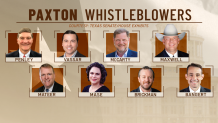
Paxton has been absent from the trial since pleading not guilty last Tuesday, but his wife Angela Paxton, a state senator, has been present though she is forbidden from voting on a decision. The rest of the Texas Senate will decide the case when all of the witnesses are heard.
Texas Lt. Gov. Dan Patrick serves as a judge for this trial. Patrick said the House started Tuesday with 9 hours 19 minutes and 12 seconds left and the defense had 12 hours 14 minutes and 15 seconds left. Patrick said Monday that he thought deliberations could begin as soon as Thursday.
Patrick said they would not take a day off until they have a final resolution on the verdict.
DAY 6 UPDATES
7:13 p.m., Buzbee passed the witness and the witness was excused. Court was adjourned for the day.
7:07 p.m., Buzbee said McCarty signed off on the memo authorizing the investigation of the Mitte Foundation, including three others at the OAG.
7:06 p.m., McCarty could not provide what the additional legal costs were for the foundation.
7:04 p.m., Buzbee asked how the Mitte Foundation was harmed and McCarty said they were threatened by an investigation. Buzbee questioned if threatening an investigation caused harm and McCarty said the office intervened which improperly pressured them, cost them money and that they used the criminal justice system to prejudice the foundation's interest in the lawsuit.
7:03 p.m., DeGuerine passed the witness and Buzbee began recross.
7:02 p.m., DeGeurin asked McCarty if he believed Ken Paxton was asking him to act in the best interests of the Mitte Foundation and he said he did not.
7 p.m., Buzbee passed the witness and DeGuerin began redirect.
6:38 p.m., Buzbee asks McCarty about previous litigation where the OAG had sued the Mitte Foundation when Greg Abbott was the attorney general.
6:31 p.m., McCarty said he had no knowledge of the hiring of Brandon Cammack or the allegation of a late-night meeting between Andrew Wicker and Nate Paul.
6:29 p.m., Buzbee asked if McCarty had any personal knowledge about house repairs, a job for Laura Olson and he said he did not. When asked about campaign donations, McCarty said he may have heard something about that and Buzbee said they were public.
6:27 p.m., Buzbee asked if McCarty had an attorney present. He said yes, Johnny Sutton. Buzbee asked how much he owed in attorney fees and McCarty said he wasn't sure and that it may be nothing. He said they'd not discussed a fee schedule.
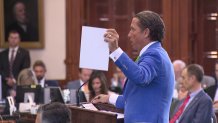
6:27 p.m., DeGuerin passed the witness and Tony Buzbee began cross-examination.
6:25 p.m., McCarty said he was retaliated against after going to the FBI, though not at the same level as some of his colleagues. He said there were reports of criminal investigations against the whistleblowers but that to his knowledge there were none. Of being called a "rogue employee," he said he was doing what he had to do.
6:22 p.m., McCarty said he believed the OAG's involvement in the Mitte Foundation was unfounded and unethical and was attacking a charitable trust as opposed to defending the public interest in a charitable trust. He said he was one of the seven deputies that went to the FBI and that it was not something he wanted to do but that he did it because he believed the OAG's office and its resources had been turned over by Paxton to a private citizen to do his bidding and was acting against the interests of the state of Texas.
6:20 p.m., McCarty said he attended a meeting with other top deputies and traded information and learned things that he hadn't known before that he said were deeply concerning. As a result, McCarty said he ordered Godbey to dismiss their intervention in the lawsuit.
6:19 p.m., McCarty said he believed that the attorney general's office's involvement in the Mitte Foundation litigation was unethical, against their statutes and he suspected them to be highly corrupt.
6:17 p.m., McCarty said he was stunned when he saw a criminal grand jury subpoena that had been issued to a bank that was clearly seeking information that would have aided World Class, Nate Paul's efforts against the Mitte Foundation. McCarty said that was weaponizing the criminal process to aid a civil litigant and that was a big ethical no-no.
6:10 p.m., McCarty said Paxton called him early one morning and asked him to go to Travis County District Court to appear at a hearing on the Mitte matter. When he said he was unable to do so, McCarty said Paxton said he'd go until McCarty talked him out of it.
"For him to make an appearance in that type of hearing sends a very odd message," McCarty said. "It didn't seem appropriate for our office to have that sort of level of involvement in a case like this at all."
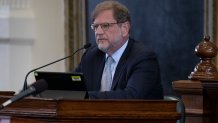
6:06 p.m., McCarty said Paxton asked him on more than one occasion to be directly involved in the Mitte Foundation matter. He said that it was incredibly unusual for someone in his position, a deputy attorney general, to have direct involvement in any litigation. He might serve as an advisor but the cases were generally handled by the OAG attorneys.
6:04 p.m., McCarty said the OAG is to take the side of the public interest, in this case, the Mitte Foundation. He said Paxton was highly critical of the Mitte Foundation's litigation efforts and he characterized those efforts to McCarty as overly zealous and wasteful.
5:59 p.m., McCarty said the emails took a tone of Paul directing McCarty's team and Buzbee objected to the content. DeGuerin then read the emails that had been entered into evidence. McCarty said the nature of Paul's communications was improper and wholly inappropriate.
5:58 p.m., McCarty said his division received a few communications from Nate Paul or his attorney Michael Wynne demanding they do more in the Mitte Foundation matter.
5:54 p.m., Compared to the Google lawsuit McCarty's team was working on, McCarty said the Google litigation was major and had the potential to impact residents in Texas, the United States and across the globe. The Mitte Foundation litigation did not reach the same level of significance.
5:51 p.m., McCarty said Paxton expressed more interest in the Mitte Foundation than almost anything else that his division was working on. He said Paxton had an urgency or almost anxiety around what they were doing in the Mitte lawsuit. McCarty said he got a very early phone call, got pulled out of a teleconference to talk about the case -- interactions which he described as highly unusual -- and he said Paxton wanted to be kept abreast of any developments.
5:48 p.m., DeGuerin asks McCarty about OAG attorney Josh Godbey about the Mitte Foundation matter and he said Godbey also did not believe intervention was necessary.
5:47 p.m., DeGuerin resumes questioning.
5:30 p.m., A technical issue leads to a short recess.
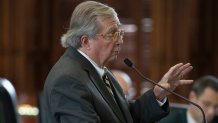
5:27 p.m., McCarty said other cases didn't allow him to spend much time considering the Mitte Foundation matter but that he did think Paxton's interest was odd or out of the ordinary. McCarty said the office did eventually intervene in the matter.
5:25 p.m., DeGuerin asked if Paxton ordered an intervention be made even after the office decided not to get involved. McCarty said he was made aware of the case because Paxton wanted to intervene in the matter and that during a meeting with the attorney general on the matter he expressed a high level of interest and some insistence that they intervene.
5:22 p.m., DeGuerin said the OAG recommended not getting involved because the foundation had representation, the trust's assets were diversified and the litigation would not impact the 2020 distributions.
5:20 p.m., Prosecutor Dick DeGuerin shows a memo that McCarty said declined the AG's involvement in the Mitte Foundation matter.
5:19 p.m., McCarty is asked if he's familiar with litigation regarding Nate Paul, World Class Holdings and the Mitte Foundation and he replied, "Of course."
5:17 p.m., McCarty said only a handful of times per year will the OAG get involved in a charitable trust case.
5:13 p.m., In talking about this history, McCarty said the first time he met Ken Paxton was when he interviewed for a position at the OAG.
5:10 p.m., The House Board of Managers called whistleblower Darren McCarty.
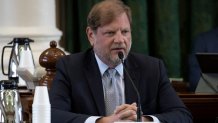
5:06 p.m., Little passed the witness and there was no redirect.
5:03 p.m., Garrison admitted the bank ultimately sold the notes and didn't lose a single dollar as a result of the opinion.
5:01 p.m., Little questioned if Garrison knew if any foreclosures were stopped in Collin County and Garrison said he only had knowledge of what the opinion did to his company. He did not know how it impacted foreclosures in Collin County.
5 p.m., Garrison said he does not have a document to show the other two postings.
4:57 p.m., Little questions the singular use of "a foreclosure" and "the foreclosure" when Garrison said he had all three properties posted for foreclosure.
4:55 p.m., Little said Garrison's recollection that they posted the three Nate Paul properties for foreclosure on the first Tuesday in August was incorrect.
4:52 p.m., Little questions Garrison about the federal moratorium on foreclosures due to the COVID-19 pandemic and when those expired. He said he was unsure.
4:47 p.m. Little begins cross-examination.
4:44 p.m., Epley passed the witness. Mitch Little approached the microphone for cross-examination. Dan Patrick then called Epley and Little to the bench.
4:44 p.m., Epley asked Garrison who benefitted from the foreclosure letter and he said, "Nate Paul and the World Class entities."
4:41 p.m., Garrison said World Class Holdings had outstanding loans of more than $11.5 million and that they were not receiving payment on the note. By delaying foreclosure, Garrison said it was a cost to the company.
On Aug. 4, the properties were to be foreclosed and Amplify kept the notes until selling the loans in September to a third-party buyer. Amplify sold the loans at par and received their past-due interest and some attorney fees.
4:39 p.m., Garrison is asked about "The Midnight Letter" or "The Midnight Opinion," which was the opinion issued by the attorney general's office that prohibited foreclosures in the state of Texas.
4:35 p.m., Garrison is asked about three loans owned by Paul that had been posted for foreclosure on the first Tuesday in August. Garrison said Nate Paul was aware of their intent to foreclose on the properties.
4:33 p.m., Prosecutor Erin Epley asked Garrison if he was familiar with Nate Paul and World Class Holdings. He said he was and that they had obtained loans from Amplify Credit Union. Garrison said the loans were delinquent and were working toward foreclosure.
4:31 p.m., The House Board of Managers called Kendall Garrison, president and CEO of Amplify Credit Union.
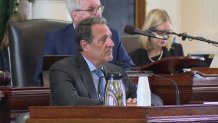
4:31 p.m., Cogdell finished his questioning and there was no redirect.
4:29 p.m., Brown said he was concerned there were pending cases in Collin County against the attorney general but that he would have been willing to look into the matter Paxton told him about.
4:28 p.m., Cogdell asked if Mateer told Brown it was a bogus investigation or that the job he was applying for was unnecessary and he said no. Brown said Mateer said he was glad he'd be considered because he knew he would tell Paxton the truth. Cogdell asked if Vasser had said anything about the case being a sham or anything of the sort and he said no.
4:27 p.m., Donnelly passed the witness and Dan Cogdell began cross-examination.
4:27 p.m., Donnelly asks if there was a complaint for an agent within the DOJ, would the OIG have oversight and Brown said it was his understanding that they do.
4:25 p.m., Brown is asked if someone working inside a U.S. Attorney's office was being investigated by the OPR would his office have any responsibility for the investigation and Brown said it would fall to OPR.
4:24 p.m., Brown is asked if he's familiar with the OPR (the Office of Professional Responsibility) and he said he was.
4:22 p.m., Brown said being a former U.S. Attorney he is familiar with federal search warrants.
4:22 p.m., Brown agreed to the OAG conditions of the rate of $300 per hour and that he'd get insurance. He said nothing happened after that.
4:18 p.m., Brown said he didn't learn Nate Paul was one of Ken Paxton's donors until he talked with Jeff Mateer. He said he was unclear why the case was going to a special prosecutor. Brown said he talked with Ryan Vasser about a potential contract. They exchanged emails about defining the scope of duties because he had concerns about conflicts of interest.
4:16 p.m., When he asked Paxton why the people in his office wouldn't investigate the case and why he wasn't firing them for not doing what he asked he said Paxton said it was complicated.
4:13 p.m., Brown said he was contacted by Ken Paxton in August 2020 about a criminal investigation and asked him to come to Austin to talk about the file. Brown said he went to Austin to meet with Paxton and they discussed the case.
4:12 p.m., Prosecutor Mark Donnelly begins questioning Brown.
4:11 p.m., The House Board of Managers called lawyer Joseph Brown, of Sherman. He was Grayson County District Attorney for 17 years and was Eastern District U.S. Attorney from 2018-2020. Brown was considered for the same outside counsel/special prosecutor position as Brandon Cammack.
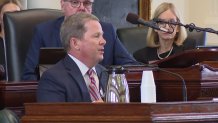
4:09 p.m., Cogdell passed the witness and Hardin had no redirect.
4:08 p.m., Cammack confirms that to this day he has been paid $0 for the time he worked for the OAG. He said he's received zero benefits from the experience. Cogdell adds that it is still true that what Ken Paxton asked him to do was "find the truth." Cammack said that's what he was told and that's what he was trying to do.
4:06 p.m., After the whistleblowers go to the FBI, the negative press has started, he's called to a meeting at Nate Paul's house with Paxton and Wynne. Cammack said he was asked to keep working but he knew in his mind he was done working on the case.
4:03 p.m., Cammack said he replied to the cease and desist by saying he'd stand down.
4:02 p.m., Cogdell asked about the cease and desist letter received and Cammack said he was shocked and confused and felt like the rug had been pulled out from under him -- like it came out of nowhere. After Penley sent the first cease and desist, Cammack said Mateer sent another one.
4:01 p.m., Cogdell asked Cammack if Ken Paxton ever asked him to misrepresent anything or lie, cheat, steal or suggest anything illegal and Cammack said, no.
3:59 p.m., Cogdell asked if Cammack could verify if Paxton ever opened an email he sent to him or not and he said he didn't know.
3:57 p.m., Cogdell said the first complaint focused on the illegality of the search warrants while the second complaint focused on an alleged fraud concerning people trying to steal Nate Paul's property. Cogdell said Cammack utilized the resources of the Travis County DA's Office to issue grand jury subpoenas for the first complaint and did the same thing for the second complaint. Cammack said he was not certain if he kept Paxton apprised of those who were subpoenaed.
3:55 p.m., Regarding the referrals, Cogdell said the second complaint came days after he started investigating the file and Cammack said it came to him directly in email. Cogdell asked Cammack how many interactions he had with staff at the Travis County District Attorney's Office. They counted through subpoenas and some staffers but never settled on an actual number.
3:49 p.m., Cogdell said Paxton has a unique style of communication in that if he needs you, he reaches out. But that someone may not always have such an easy time reaching him. Cammack agreed with that.
3:45 p.m., Cogdell asserts that just because a judge signs a search warrant it doesn't make it a good search warrant. Cammack agreed.
3:43 p.m., Cogdell asks Cammack if he ever saw any reports or memos showing if Penley or Maxwell had done any work investigating the same complaints he was investigating and he said no.
3:37 p.m., Cammack returns to the stand and Cogdell continues cross-examination.
3:04 p.m., Paxton orders a break until 3:30 p.m.
3:01 p.m., Cammack said Paxton instructed him to just find the truth.
3 p.m., Cogdell describes a "wet ink" copy as a copy signed by a judge, an original copy, and may help show if a document had been tampered with.
2:57 p.m,. Cammack said the same presentation had been given to Penley and Maxwell at the OAG. Afterward, Cammack said he went to meet with Ken Paxton on the same day and Paxton agreed the presentation was convincing.
2:56 p.m., Of his first meeting with Nate Paul, Cammack said Paul and Wynne ran through their presentation of why they believed the search warrants had been tampered with.
"I didn't make a judgment either way but it was a persuasive presentation," Cammack said.
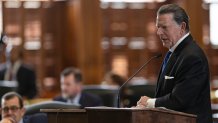
2:54 p.m., Cammack said he Googled Nate Paul before meeting him and read headlines about his real estate development work and knew he'd had a search warrant run at his home and business.
2:53 p.m., Cogdell asked when he learned Wynne was representing Nate Paul and he said it was after he accepted the job.
2:52 p.m., Cammack said he received his first contract on Sept. 3, 2020, in his email. He said it got lost and he didn't get it and Vasser resent it on Sept. 4, 2020. He said he spoke with both Paxton and Vasser about the contract and that Paxton said he could get his hourly rate of $300 per hour. No one suggested he didn't have a contract.
2:51 p.m., Cammack said his rate was fair and that accepting the job wasn't about the money.
2:50 p.m., Cammack said when he received the contract he realized how limited it was in scope.
2:49 p.m., Cammack said he called the Ethics hotline at the State Bar of Texas to verify that he was OK to accept the outside counsel position. He said the hotline operator congratulated him on getting the job.
2:48 p.m., Cammack said he never got any pushback on the outside counsel work he was doing for the OAG until he got a cease and desist letter.
2:47 p.m., Cammack said Ryan Vasser reached out to do a conflicts check but never expressed that Cammack might not be qualified or that the hiring was unnecessary.
2:44 p.m., Cammack said Mateer seemed like he didn't think the complaint was worth pursuing but never said it was a crime for Cammack to be interviewing for the job. Cammack leaves the meeting hopeful he'll get the job.
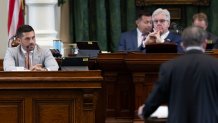
2:43 p.m., Cammack said Paxton said he spent 25 minutes or so with Paxton and that he said he was looking to hire a special prosecutor to investigate whether federal agents had tampered with a search warrant. Cammack said he then met with Jeff Mateer who acknowledged why they met but that he appeared "disengaged."
2:41 p.m., Cammack recalls speaking with Ken Paxton on Aug. 23, the day after his birthday, who said he got his name from Michael Wynne and wanted to know if he was interested in working on a criminal investigation. He said he met with Paxton on Aug. 26.
2:39 p.m.; Cammack agreed with Cogdell's assertion that he views federal judges, prosecutors, and magistrates the same as any other profession in that there are good ones and bad ones.
2:35 p.m., Cammack agreed it is not illegal to investigate the legality of a search warrant and they have the obligation to do that on behalf of their clients.
2:30 p.m., Cammack agreed he did not get involved to benefit Nate Paul or his business interests.
2:29 p.m., Cogdell asked if he ever believed he was investigating a baseless complaint and Cammack said Hardin never mentioned a baseless complaint.
2:28 p.m., Cogdell reads Article of Impeachment No. 5 which says while holding office Paxton misused his powers by violating the laws governing the appointment of prosecuting attorneys pro tem. Cammack agreed he was not a prosecuting pro tem.
2:27 p.m., Codgell asks for Article of Impeachment No. 5 to be brought up in the courtroom. Cogdell asked if Hardin had shown him that article. Cammack said he didn't recall seeing it.
2:27 p.m., Cogdell asked how many times Cammack met with Rusty Hardin prior to testifying. He said three times for a total of about seven hours.
2:26 p.m., Cogdell said the reason the Marshals showed up at Cammack's office was because of an interview he did while serving a subpoena to a widower. Cammack said he'd learned that later. Cogdell confirmed Paxton hadn't sent him to talk to that person and that it was Nate Paul, which Cammack confirmed.
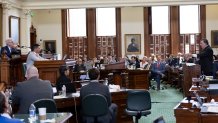
2:25 p.m., Defense attorney Dan Cogdell began cross-examination.
2:25 p.m., Hardin passed the witness.
2:23 p.m., During the first week of October Cammack said he was summoned again for a meeting at the OAG office with Webster and Paxton to discuss the contract. Instead, Cammack said, they went to a Starbucks outside of the office and that it was uncomfortable. Cammack said Paxton, Webster and two others he didn't know were at the meeting. He said Webster did all the talking and that he was told the contract was no good and to stop working.
When he asked about his outstanding $14,000 invoice he said Webster told him he'd have to eat it and he'd eaten a $40,000 invoice. Cammack said he found the comment offensive.
Cammack said the meeting at Starbucks was 15-20 minutes long and that he had to ask for a ride back to his car.
2:22 p.m., At the last meeting, Cammack said he was told to continue working on the report. He said he remembered thinking, 'Yeah, right. I'm not doing anything else.'"
2:21 p.m., Cammack said Brent Webster asked for copies of anything he'd sent the attorney general.
2:19 p.m., Cammack said he heard from Paxton a couple of days later and was asked to come to the OAG's office to meet with Brent Webster (Webster replaced Jeff Mateer). During the meeting, Cammack said he vented his frustration.
"The fact that I had a whole entire life before all of this. You know, a docket, I had clients. I didn't ask for any of this. You guys reached out to me to come do a job and then now you're pulling the rug out from under me and I'm getting cease and desist letters and now my name is being thrown through the mud in the media. It's just a totally new world to me. I let that out," Cammack said.
2:19 p.m., Cammack said, his state of mind was that he had received two cease and desist letters and wasn't doing any more work. He added he hadn't been paid and wanted to learn what was going on or what he should be doing. He admitted he was frustrated.
"It was annoying to have to drive out a three-hour drive for an hour meeting and then come back," Cammack said.
2:17 p.m., While Paxton was on the balcony, Cammack said they were talking about what had taken place over the past few days. When Paxton came in he said the general told him Penley didn't have any authority to tell him to stop working. Cammack said after Paxton told him that he left Paul's house.
2:17 p.m., Goes to Nate Paul's house for a meeting. Attending the meeting were Michael Wynne, Nate Paul and Ken Paxton. Cammack said he was surprised to see Paxton there. He said Paxton was on the phone and that he shook his hand but that the general spent much of the time on the balcony on the phone.
2:12 p.m., Cammack sent his signed copy of the contract to Ryan Vasser on Sept. 4 but didn't see the contract signed by the attorney general until Sept. 28.
2:10 p.m., Cammack said the OAG said there was no valid contract and he replied by sending them the contract he had that was signed by Ken Paxton.
2:09 p.m., Cammack said after getting the cease and desist he sent his invoice to the OAG's office. After that, he said he got an email the next day from Jeff Mateer and another cease and desist letter accusing him of crimes.
2:08 p.m., Cammack said Paxton advised him not to talk to the Marshals without a lawyer and that he didn't know what their visit was about.
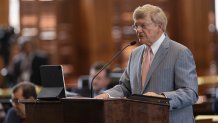
2:06 p.m., Cammack said he then received a cease and desist letter from Mark Penley. He responded to the letter and reached out to Ken Paxton by calling and texting. Cammack said U.S. Marshals showed up at his Houston office and he again called Paxton, asking why there were Marshals at his office. "I just started blowing his phone up until he answered it," Cammack said.
2:05 p.m., After issuing the subpoenas he returned to Houston and had an email from one of the banks that was served that they needed credentials. Cammack said he'd asked the OAG for credentials four or five times but they had not been provided.
2:02 p.m., Hardin asked Cammack if while serving the subpoenas would he sometimes conduct interviews with the people being served. He said he did talk to some of the people being served.
2:01 p.m., Cammack clarifies the subpoenas that were emailed were for the first referral and the subpoenas served in person were for the second referral. When serving the subpoenas, Cammack said he identified himself as a special prosecutor for the OAG and that Wynne was present.
1:58 p.m., By Sept. 29, 2020, Cammack said he'd talked to Ken Paxton 15-20 times about the case. Between Sept. 4 and Sept. 29, Cammack said 7-10 of the contacts were by phone calls and there were no in-person visits. He said they communicated mostly through texts and that he was asked to download the Signal app, which allows for encrypted messaging for voice and video calls and instant messaging.
1:57 p.m., Cammack said he felt pressure to allow Wynne to come along and that he wanted to do a good job and he trusted him so he allowed it. Hardin asked Cammack if he was aware of a statute prohibiting interested parties from serving subpoenas and Cammack said he wasn't.
1:57 p.m., Cammack said Wynne was insistent on going with him to serve subpoenas. He said Wynne didn't need to do that, that it wasn't appropriate but that Wynne said he's Nate Paul's lawyer and it was important for him to be there to talk about the case.
1:52 p.m., Cammack said he could not recall all of the people or entities who were sent subpoenas. Hardin asked if Cammack knew some of the people he was sending subpoenas to were opposing counsel to Nate Paul in civil litigation. Cammack said he didn't know that and that if he knew that he wouldn't have issued them subpoenas. Cammack said he got the list of who to subpoena from Michael Wynne and Nate Paul.
1:49 p.m., Cammack said he started issuing subpoenas via email on Sept. 25, 2020, and that he sent out between 35 and 40 subpoenas. He said there were a few he was going to serve personally for the second referral.
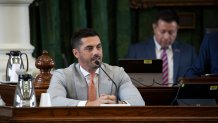
1:48 p.m., Cammack said he didn't discuss with the DA's office who he wanted to subpoena, he just emailed the application for subpoenas.
1:47 p.m., Regarding the grand jury subpoenas, Cammack said there was assistance from the Travis County DA's office to get the forms. Cammack said the only assistance he remembered receiving from the Travis County DA's office was a sample form.
1:37 p.m., Cammack said the prosecution memo was a "jump off point" that gave him detailed information about what had happened, more information than what was in the timeline.
1:34 p.m., Cammack said the prosecution memo was unprompted. He added that the information supplied by Wynne was helpful to the investigation and what was to be done.
1:33 p.m., Cammack said Wynne was regularly providing him with information including Excel spreadsheets with names and demographic information related to the referral. He said he was also given a timeline early on as well as a prosecution memo.
1:27 p.m., Cammack said he sent Paxton things he'd been sent by Wynne.
1:25 p.m., Cammack said he received the document, sent it to Ken Paxton, took no further action and they never discussed what was in it.
1:23 p.m., Cammack is shown a document he says was prepared by Michael Wynne, a former lawyer for Nate Paul hired by Ken Paxton to investigate the claims.
1:21 p.m., Brandon Cammack called to return to the stand. Rusty Hardin resumes direct.
1:14 p.m., Patrick is going over evidence with the attorneys.
1:13 p.m., the court of impeachment was brought back into session. Patrick said they had plenty of homework over lunch. Patrick then called the attorneys to the bench.
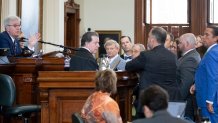
11:59 a.m. Court is in recess for lunch until 1 p.m.
11:55 a.m. Hardin again moved to add documents into evidence and Buzbee objected. A disagreement between the prosecution and defense ensued.
11:52 a.m. Cammack verified with Wynne that he had filled out the grand jury subpoena form correctly because, according to Cammack, he had never done it before. In response, Wynne said, "form is fine."
11:50 a.m. Cammack said he reached out to the Texas State Bar ethics hotline after he received the draft contract from the Attorney General's office. "They said it was fine, and congrats on the job," he said.
11:49 a.m. Cammack explained that he did not know that Paul was under investigation at the time, and he thought that whatever documents Wynne gave him were for the purpose of investigating the referral relating to the search warrant.
11:47 a.m. Cammack said he was frustrated about his lack of government identification, adding that this became problematic when he subpoenaed Microsoft. Microsoft told him that he could not have access to the documents without a government ID.
11:45 a.m. Cammack said he believed that he had the full support of the Attorney General in everything he did. "I got affirmation the entire time that everything was good, and no one said anything different until I got the cease and desist," Cammack said.
11:43 a.m. Cammack said he assumed he was being given information from Paul and Wynne that had already been given to Penley as he continued his investigation. Cammack said he was in the habit of informing Paxton about the status of his investigation and about the documents he received. According to Cammack, Paxton never once told him to stop involving him in his progress.
11:42 a.m. After several minutes of discussion about admitted evidence, testimony continued.
11:34 a.m. Hardin asked that multiple documents be admitted into evidence. Buzbee objected to several of the documents. The documents without objections were admitted into the record.
11:33 a.m. Cammack said he learned how to file a grand jury subpoena when Michael Wynne gave him the contact information for an individual at the Travis County DA's office. Cammack told the individuals at the DA's office that he was a special prosecutor working with the Texas Attorney General's office.
11:32 a.m. Court is back in session.
11:24 a.m. Court is in recess for 10 minutes.
11:22 a.m. Cammack said when he asked Paxton about getting a badge and legal credentials, Paxton just responded with "We're working on it" or "We'll get it to you." Cammack said he asked four or five times for those documents, but that he never wondered about the difficulty of getting the documents. He said he just did not know how things worked in the Attorney General's office.
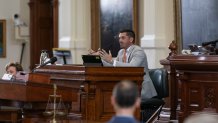
11:19 a.m. Paxton endorsed Cammack's idea to issue grand jury subpoenas, Cammack said. He and Paxton never discussed the potential reaction of people who received those subpoenas.
11:18 a.m. Cammack said he trusted Paxton and Wynne, that he "didn't really know Nate Paul" and that he was "just trying to do [his] job."
11:16 a.m. Cammack said the first time he ever saw the official email address of the Attorney General's office was when he got a cease and desist letter from Jeff Meteer. "I thought all of my communications with [Paxton] were official, but that was the first time I saw his governmental email address."
11:15 a.m. Paxton gave Cammack a "Proton" email address to use for communication. Paxton also began using a different phone number with Cammack, prompting Cammack to buy a separate phone that he used solely for communicating with Paxton "because he did not want to miss a call from the Attorney General."
11:13 a.m. Cammack said this type of investigation was not something he had done before. When thinking about how to approach the case, Cammack said he decided the best course of action would be to use grand jury subpoenas. Cammack said eventually he was asked to communicate with Paxton using the "Signal" app.
11:10 a.m. Cammack said Wynne told him that Penley asked him for documents "out of the clear blue" relating to Paul's case. According to Cammack, Paxton said he told Penley to "stand down" because he was not a part of the case anymore.
11:06 a.m. Cammack said Paul and Wynne were critical of Penley in their first meeting because Penley did not agree that there was evidence of criminal activity in Paul's case.
11:03 a.m. Cammack said he never met Mark Penley during his time working at the Attorney General's office. Cammack said he asked about getting a file from Penley, and Paxton said Penley was out of town and that the file was on his desk.
11:00 a.m. Cammack said he was given a timeline of events of what Nate Paul said happened. He said he viewed Paul as the complainant and Wynne as his attorney in "some other separate matter."
10:57 a.m. Cammack said he asked Paxton if his contract was extended to cover the contents of the second referral. Paxton said it did, and Cammack said he wanted to "rise to the occasion" and perform the job.

10:55 a.m. Cammack said he believed he would be investigating a referral from the Travis County District Attorney's office about the search warrant for Paul's property. He said he then received a second referral relating to mortgage lenders wrongfully foreclosing on Paul's properties. He said he had no experience prosecuting mortgage fraud or white-collar crime at the time.
10:52 a.m. Hardin showed a copy of Cammack's original employment contract to the court. Cammack said he believed he was being hired by the Attorney General's office and had no contact with the District Attorney's office about his employment. He said his sole contact at the Attorney General's office was Paxton, "at his direction," Cammack said.
10:50 a.m. Cammack said that after reading his contract, his role would be "limited in scope." Cammack said his role would be more of an investigative role, and that he would be to examine the validity of the facts of Paul's case and then submit a report or brief, not try a case.
10:49 a.m. Paxton asked Cammack to get a "wet ink copy" of the original search warrant, meaning that Paxton wanted the original copy of the search warrant that was signed by a judge.
10:48 a.m. Cammack said in regards to Paul's allegations, he did not have an opinion one way or the other about the validity of the claims. He said that if the allegations were true, "it would have been a big deal."
10:47 a.m. After the meeting, Paxton took Cammack to a press conference with him, an experience that Cammack described as "cool."
10:45 a.m. Cammack said Paxton explained that he could not get the people in his office to work on this case. According to Cammack, Paxton gave him the impression that the people in his office were refusing to work on it.
10:44 a.m. In the meeting with Paxton later that day, Cammack said he told Paxton that Paul's presentation was "convincing." "I was fired up about the opportunity to do it," Cammack said. "It was an opportunity to do something new in my career."
10:43 a.m. Cammack said that after leaving the meeting with Paul, he had not yet formed an opinion about Paul's case. "It was like drinking through a fire hose," Cammack said about the information he received during the meeting with Paul.
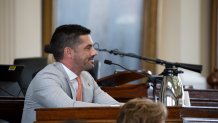
10:41 a.m. Cammack said Paul did most of the talking during their first meeting. "It was a lot of information given to me in a short period of time," Cammack said. He said his first impression of Paul was "energetic, passionate, had a lot of conviction," and even that Paul was somewhat "aggressive."
10:40 a.m. Cammack said that before the meeting with Paul, he had only Google-searched Paul. He knew Paul was a commercial real estate developer but did not know about the incident involving the search warrant.
10:37 a.m. Cammack said during a second phone call with Paxton, that he agreed to an hourly rate of $300 an hour. Paxton and Cammack agreed to meet on Sept. 4, and Cammack planned to meet with Nate Paul and Michael Wynne before the meeting with Paxton the same day.
10:34 a.m. Cammack said a few days after the meeting, he got a text from Ryan Vassar asking to schedule a time to speak on a call. Cammack said Vassar asked for his email address because he was working on Cammack's employment contract. Paxton contacted Cammack by text to see if he had received the contract on Sept. 3, 2020.
10:31 a.m. Paxton said he wanted to hire a special prosecutor because his team would not work on the case and that he "wanted to find out the truth about what happened." Paxton then introduced Cammack to Jeff Meteer. Cammack said Meteer seemed "disengaged" about Cammack applying for the position, as though it was "Paxton's deal and [Meteer] was not interested in it." "Mr. Meteer was not focused on it," Cammack said.
10:29 a.m. On August 26, 2020, Cammack drove to Austin to meet with Paxton. Paxton asked him to bring a resume. The two discussed Cammack's background and experience, and Paxton told Cammack he was looking to hire a "special prosecutor" to investigate potential violations of the Texas penal code. Cammack said the conversation lasted 15 to 20 minutes in total.
10:25 a.m. In Cammack's first conversation with Paxton, the Attorney General said he got Cammack's name from Michael Wynne. Paxton said he had a criminal case for Cammack to work on and they scheduled a meeting in Austin for August 26. Cammack said he was excited to work in the Attorney General's office at the time of the meeting.
10:23 a.m. Cammack said he was approached by Ken Paxton and later Michael Wynne, attorney for Nate Paul, in August 2020. Cammack had previously interacted with Wynne through a Rotary Club in Houston.
10:21 a.m. Cammack said that in his history as a criminal defense lawyer, he had not had any experience filing grand jury subpoenas.
10:20 a.m. Cammack explained that at the time he was approached to be outside counsel in the case involving Nate Paul, he had been a lawyer for five years.

10:17 a.m. Prosecutor Rusty Hardin began questioning Cammack. Cammack explained some of his background and experience with the law, including his law school and previous employment history. Cammack even mentioned that he was married on Sept. 2, 2023.
10:16 a.m. The bailiff was asked to bring in witness Brandon Cammack, a Houston defense attorney hired to pursue an investigation of Paul’s allegation about the FBI and other parties.
10:13 a.m. Attorneys for the prosecution and defense approached the bench to speak with Patrick.
10:12 a.m. According to Patrick, court began late today because both the prosecution and the defense had issues they wanted to discuss before the start of the trial.
10:09 a.m. Court began with a prayer led by Sen. César Blanco from District 29.
10:08 a.m. The Senate was called to session and Lt. Gov. Dan Patrick entered the chamber. The jury was then called to enter.
WHY IS PAXTON ON TRIAL?
The Republican-led Texas House of Representatives voted overwhelmingly in May to impeach the attorney general, largely based on his former deputies' claims that he used his power to help a wealthy donor who reciprocated with favors including hiring a woman with whom Paxton had an extramarital affair. The 20 articles of impeachment brought forth by the Texas House include allegations of abuse of public trust, unfitness for office and bribery. The Texas Senate is holding four of the articles in abeyance because they are largely related to the 2015 criminal charges where Paxton has been accused of felony securities fraud. Paxton has pleaded not guilty in that case but so far there has been no trial.
If convicted in the impeachment, Paxton would be removed as attorney general and could be barred from holding future elected office in the state.
THE LATEST IN THE KEN PAXTON IMPEACHMENT TRIAL
Below are some of the headlines from the historic nine-day impeachment trial.
KEN PAXTON IMPEACHMENT TRIAL
What to know about the historic impeachment of Texas Attorney General Ken Paxton.

